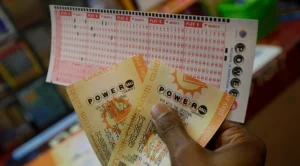 Since the beginning of the Covid-19 pandemic, British gambling operators have been looking to establish a better presence online and to expand their online offerings, as the lengthy lockdowns and social distancing measures associated with the coronavirus have had their betting shops shut.
Since the beginning of the Covid-19 pandemic, British gambling operators have been looking to establish a better presence online and to expand their online offerings, as the lengthy lockdowns and social distancing measures associated with the coronavirus have had their betting shops shut.
The measures that have been imposed by the UK Government as part of the efforts to tackle the infection from spreading further, such as closures of social and commercial venues, while all major sporting events have been cancelled on a global scale.
Despite the extensive closures of brick-and-mortar gambling venues for much of the past 12-months, some UK gambling operators still saw an increase in their core earnings thanks to the digital operations they have. In fact, online gambling not only helped gambling companies to keep their heads over the water during the Covid-19 pandemic but also registered a significant increase in popularity and participation rates.
Some of the largest companies in the UK gambling market – Entain, bet365, Rank Group, 888 Holdings and Gamesys – reported they have had strong performances since March 2020.
However, what turned out to be a good thing for the industry raised some serious concern about a potential increase in gambling-related harm and problem gambling, especially combined with stress, isolation, anxiety, boredom and/or financial worries. As revealed by the country’s regulatory body, the UK Gambling Commission (UKGC), many people engaged in online gambling during the pandemic, with some customers expanding into new gambling activities and spending more time and money on digital betting services.
UK Gambling Industry Reliant on Vulnerable Gamblers Who Spend More Than They Can
 As revealed by the UKGC, the fact that customer engagement with a broader range of gambling activities can be associated with higher levels of moderate-risk gambling-related harm and gambling addiction was found particularly concerning.
As revealed by the UKGC, the fact that customer engagement with a broader range of gambling activities can be associated with higher levels of moderate-risk gambling-related harm and gambling addiction was found particularly concerning.
Long-time anti-gambling advocate Matt Zarb-Cousin has also warned that with the land-based gambling venues being shut and operators increasing their digital presence, many casual gamblers had been attracted to some online casino and slots games. Mr Zarb-Cousin further noted that gambling advertising over the Internet has risen threefold since the first lockdown in the UK in March 2020.
The anti-gambling campaigner has shared, such a business model has been associated with more people being attracted to place a bet on various sports events online, and then attract as many of those customers to casino and slots games as possible. as Mr Zarb-Cousin also highlighted, although gambling businesses allow their customers to ban themselves from their services in case they are worried about their gambling habits, a substantial part of these companies’ revenue actually depends on a quite small number of players who are considered most vulnerable.
According to research that was carried out by scientists from the University of Liverpool in 2020, about 86% of the gross gambling yield of operators were generated by 5% of gambling accounts with the biggest annual spending. Such customers are usually considered to be most at risk. The majority of online gambling account holders either lost a modest amount on gambling or won some money from it. Data have shown that almost 85% of them spent less than £200 in the year since the first lockdown in the UK started.
The study showed that casino and slots games accounted for 93% of gross gambling yield from online gambling of the companies that took part in the research. Furthermore, residents of more deprived areas in the country were more likely to use gambling products, not to mention they also accounted for extremely high spending in terms of gross gambling yield.
Online Gambling on the Rise but Campaigners Say Stricter Regulation on the Sector Is Needed
 The revelations for the increased online gambling participation rates have been made at a time when the UK Government is processing its review of the country’s Gambling Act 2005 that has been considered no more suitable to serve its purposes, considering the increasing digitalisation of the sector.
The revelations for the increased online gambling participation rates have been made at a time when the UK Government is processing its review of the country’s Gambling Act 2005 that has been considered no more suitable to serve its purposes, considering the increasing digitalisation of the sector.
Gambling operators in the UK have registered massive growth in popularity over the last decade, especially after the rise of online gambling. Anti-gambling campaigners have been calling for changes, saying that the more relaxed regulation does not serve its purposes at a time when literally everyone has a smartphone which makes them capable of placing bets online whenever they want to.
Apart from that, anti-gambling advocates say that the lax regulation of the sector has been among the main reasons why gambling operators have turned into some of the largest companies in the British economy. They claim that there had not been any innovation in gambling regulation in line with the changes that have been taking place around the sector, so they have been calling for more stringent regulation of the sector.
The trade body representing the UK gambling industry – the Betting and Gaming Council (BGC) – has shared that its registered members provide 119,000 jobs across the country and generate taxes amounting to £4.5 billion for the Treasury, adding gross value of £7.7 billion to the country’s economy. Apart from this and some sizeable contributions through sports sponsorship deals, members of the BGC have been donating to various charities and non-profit organisations, some of which help treatment of problem gambling.
Finding the Balance in Gambling Regulation is Crucial for the Sector
 The Betting and Gaming Council has backed the review of the Gambling Act 2005, as well as the UK Government’s assurance that the process will be led by evidence. Still, the trade body of the British gambling operators insisted that, according to the latest government data, the overall problem gambling rates have been stable at 0.5% for twenty years.
The Betting and Gaming Council has backed the review of the Gambling Act 2005, as well as the UK Government’s assurance that the process will be led by evidence. Still, the trade body of the British gambling operators insisted that, according to the latest government data, the overall problem gambling rates have been stable at 0.5% for twenty years.
A spokesperson for the organisation shared that the number of safer gambling messages displayed on online gambling platforms has more than doubled during the coronavirus pandemic. On the other hand, the number of direct interventions in which customers have been spending increasing amounts of money in comparison to the pre-pandemic period has increased by 25%.
Both anti-gambling campaigners and the BGC have been hopeful that the ongoing Gambling Act review of the Government will find the right balance between the stricter regulation in order to provide the best protection to vulnerable players and at the same time not spoiling the fun for all customers of the sector who do not have any problem controlling their gambling habits.
- Author


